
The Philippines’ presidential spokesperson Salvador Panelo has been dragged into a scandal surrounding an ex-mayor serving a 360-year sentence for rape and murder, after it emerged he had written a referral letter to a parole board chief regarding an appeal for clemency by the convict’s family.
Elvira Sanchez, the wife of convicted rapist Antonio Sanchez, revealed at a Senate hearing today that the head of the Board of Pardons and Parole (BPP) told her to “ask for some recommendations” from government officials to urge President Rodrigo Duterte to grant her husband executive clemency.
She then recited the names of people she had approached. They included Panelo, Imelda Marcos, Duterte (approached through former presidential aide and now senator Christopher Go), and retired associate justice Arturo Brion.
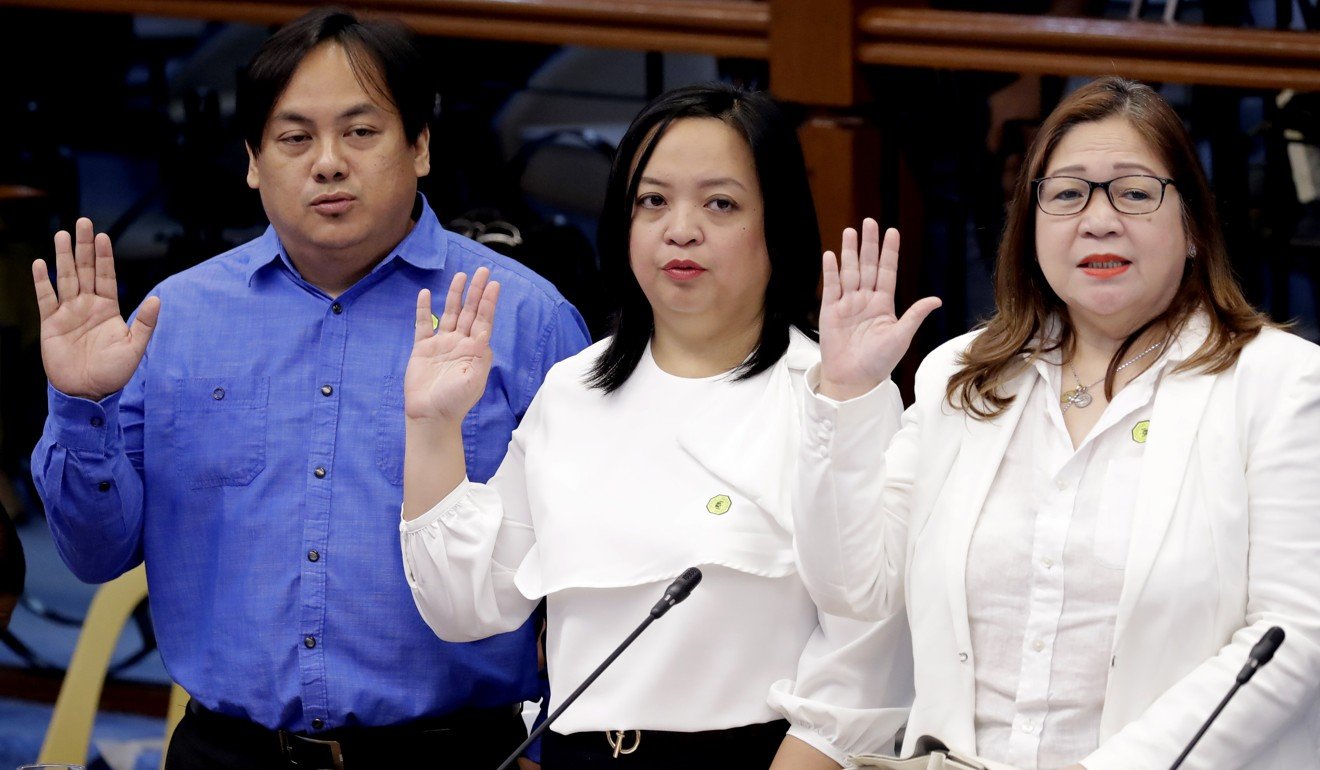
Parole chief Reynaldo Bayang, who was at the hearing, confirmed the names.
While the Senate hearing was still going on, Panelo hastily called a press conference in the presidential Malacañang Palace.
He disclosed for the first time he had met with members of the Sanchez family, but denied he had intervened to have the convict released. Previously, he had denied meeting any of the Sanchezes and said he was no longer in touch with them.
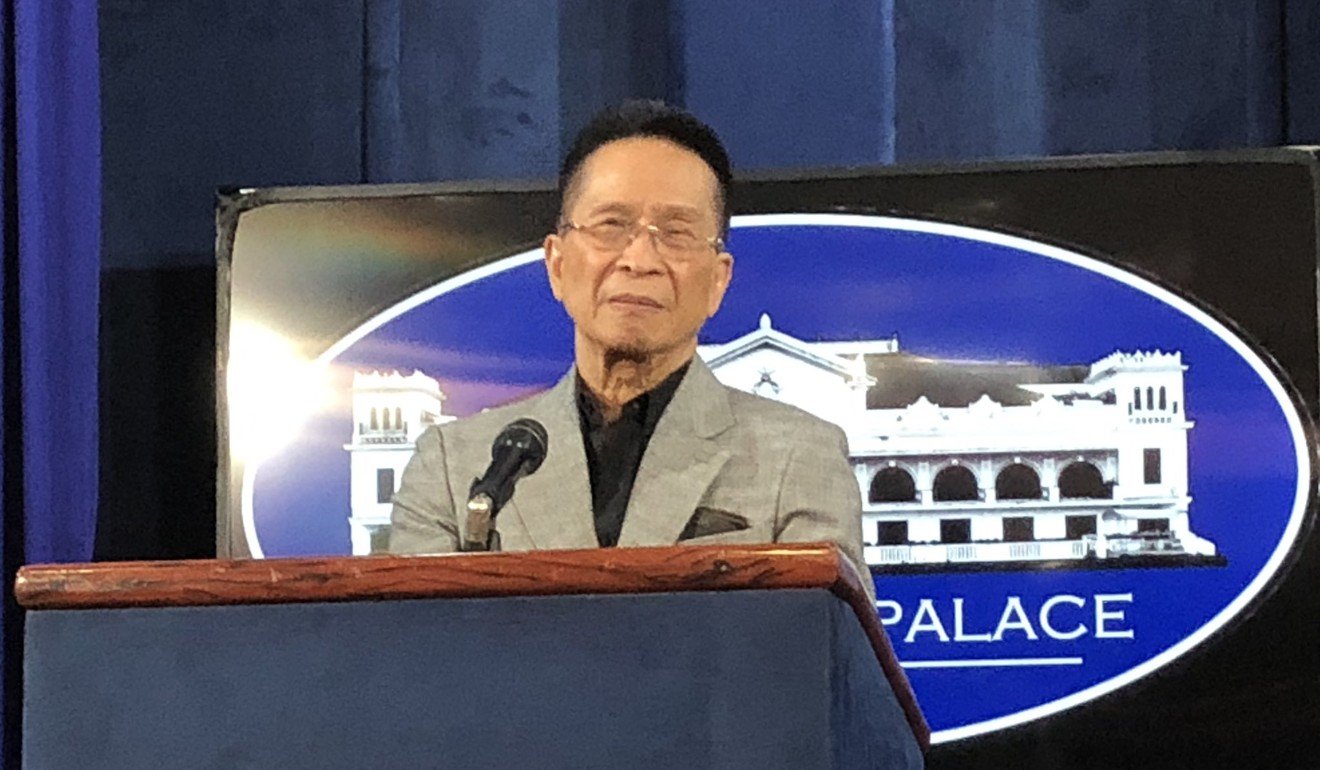
Panelo said he had merely written a referral, “just one of the thousands of referrals this office has made”.
He later announced he would sue news sites Inquirer.net and Rappler for writing that he had recommended Sanchez’s release.
“This (media) report is far from the truth and we find it defamatory in nature,” Panelo said during his noon press briefing.
“There is no part of this communication asking for intervention,” he said, referring to his referral letter to the Board of Pardons. “On the contrary this representation left it to the discretion of the board of pardons and parole to evaluate the case of Mr Sanchez.”
Sanchez was a mayor of Calauan, a municipality south of Metro Manila, in 1993 when his men kidnapped college student Eileen Sarmenta and presented her to him as a “gift”.
After raping the woman, Sanchez turned her over to his men, who took turns raping Sarmenta before shooting her dead. They also killed a male student who had happened to be with her at the time.
In 1995, after a sensational trial, Sanchez and his men were each sentenced to seven life sentences, each of 40 years. Sanchez received another two life sentences in a subsequent, separate trial for the murder of two political rivals. One of his lawyers then was Panelo.
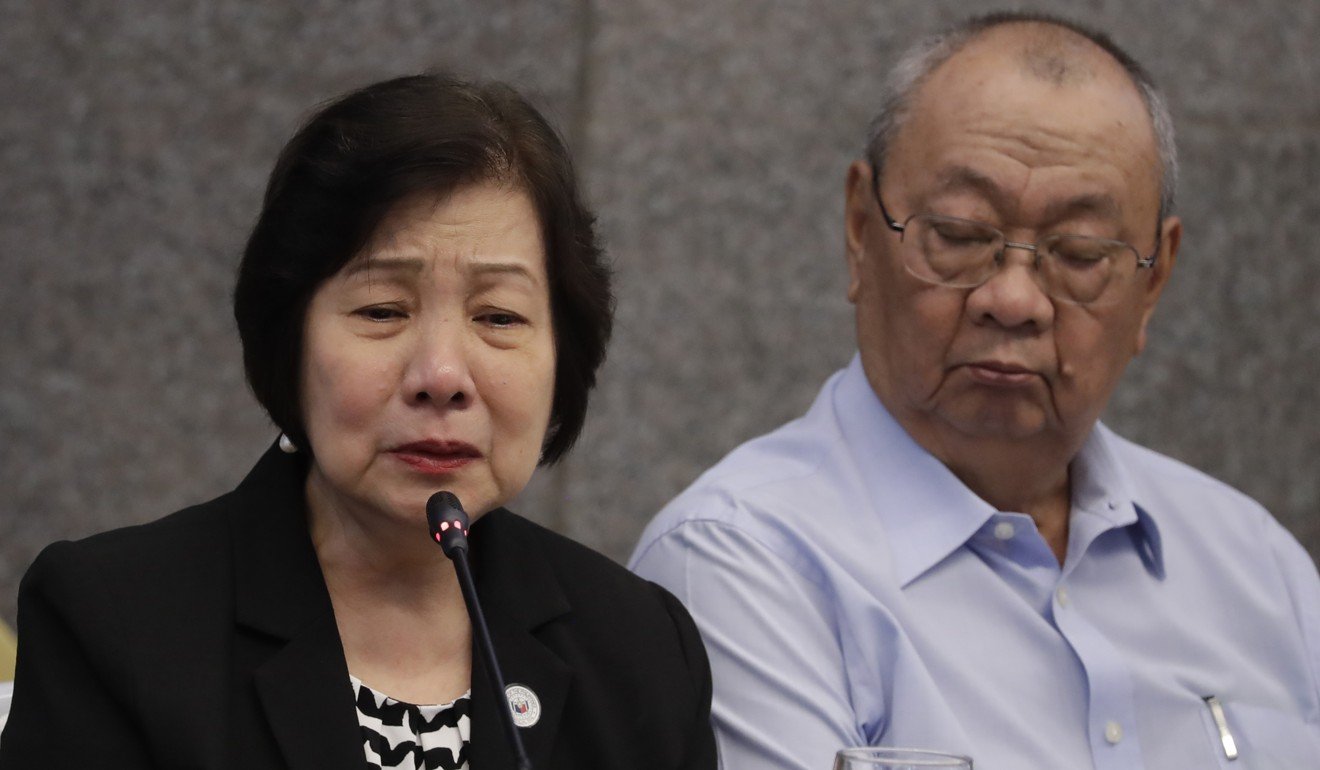
In today’s hearing, Bayang produced several documents, among them a letter written by Panelo on paper that read “office of the chief presidential legal counsel”.
Dated February 26, 2019, the document was addressed to Bayang and referred to a letter written by Sanchez’s daughter asking for clemency for her father.
“In line with the president’s commitment for good governance, transparency and immediate action on matters that affect the welfare of the people, we are referring this matter to your good office for your evaluation and whatever appropriate action you may want to undertake under the premises,” the letter said.
Commenting on Panelo’s referral, Senator Panfilo Lacson said: “He has a lot of explaining to do; it’s up to him to convince the people, you, I and the public, if what he did was matuwid (ethical).”
Senator Franklin Drilon was quoted by ABS-CBN saying: “On its face, [Panelo’s letter] would appear to be a plain endorsement, but his signature carries a lot of weight, including the use of the letterhead … that has weight.”
Retired Judge Harriet Demetriou, who had handed down the life sentences, called on Panelo to resign last week after he said he knew nothing about Sanchez’s impending release.
“That is impossible. He is the presidential legal counsel,” she said. “He should have advised the President that Sanchez was not qualified for release under the law.”
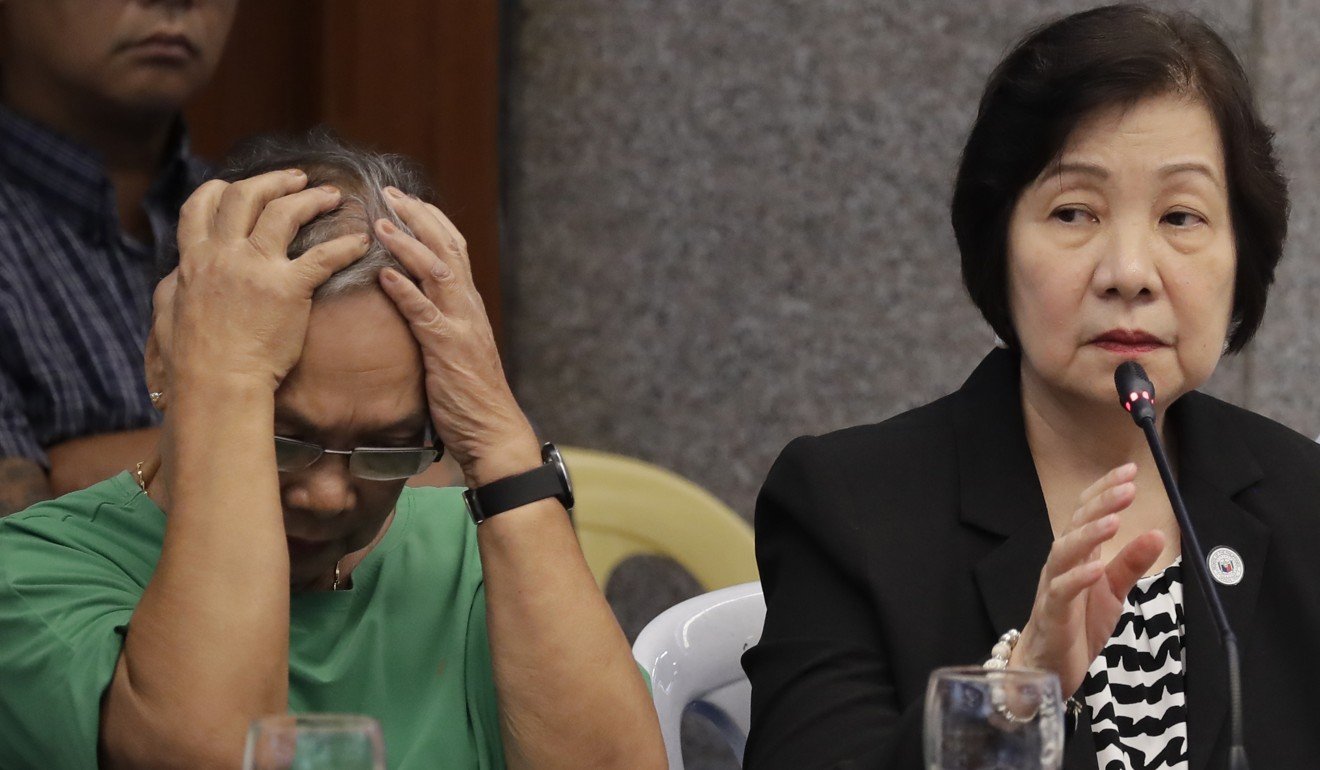
The prison release scandal blew up last month, when it was revealed that Sanchez would soon walk free because of a Supreme Court ruling that said the Good Conduct Time Allowance law, which reduces the jail time of inmates for good behaviour, would retroactively apply to sentences served by convicts even before the law was passed in 2013.
Sanchez was about to step out of jail when the media was tipped off about his release.
Senators have asked Corrections chief, Nicanor Faeldon, to explain how his office managed to calculate that Sanchez, who is in his 24th year of imprisonment and was not even qualified for the “good-conduct” law due to the severity of his crimes, had somehow already served a 40-year sentence.
Although the ex-mayor’s sentence totalled 360 years, in Philippine law no convict ever spends more than 40 years behind bars.
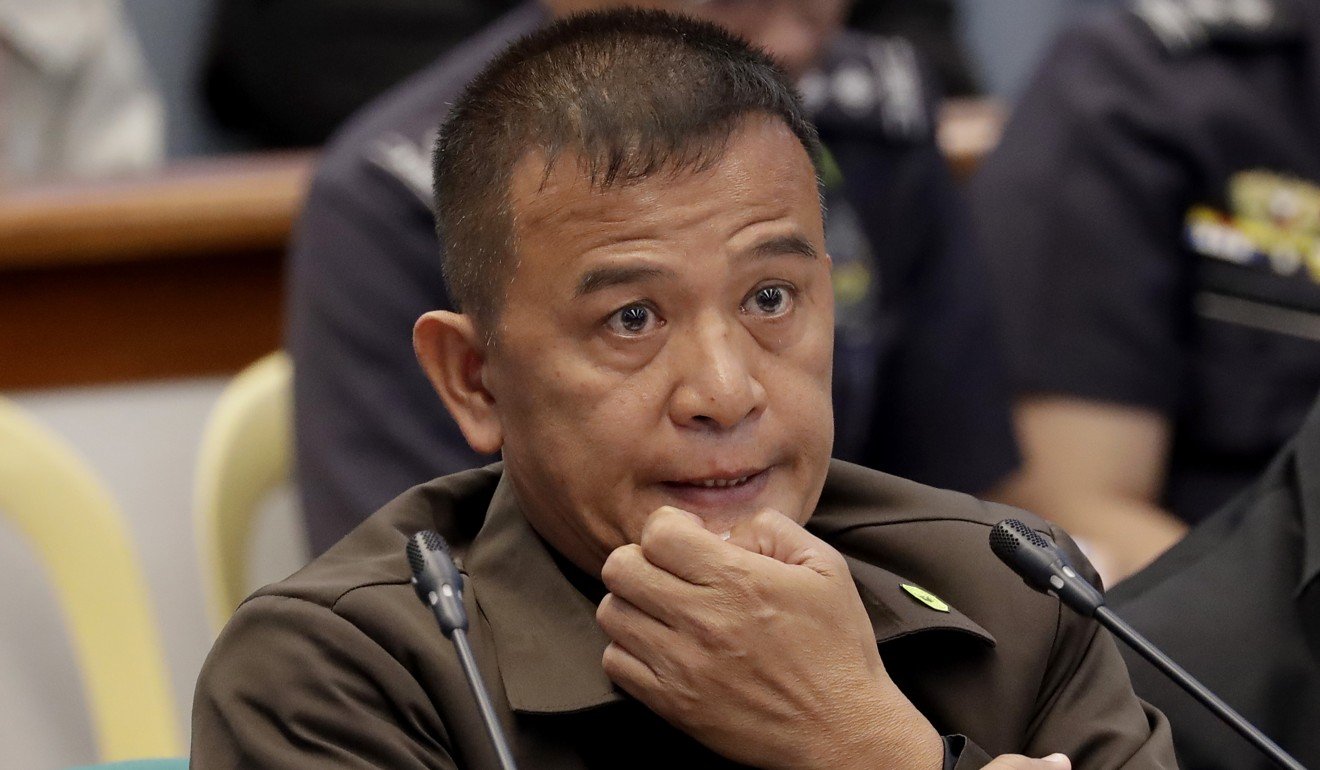
While in prison, Sanchez repeatedly denied his guilt and expressed no remorse. Drugs have been found inside Sanchez’s cell, in one instance, stashed inside a statue of the Virgin Mary.
On Tuesday, his family said they had no intention of paying the 12 million pesos (US$230,000) in damages imposed by the sentencing judge.
Panelo is not the only high-profile name to have been caught up in the controversy surrounding Sanchez’s appeal.
Imelda Marcos, the wife of former dictator Ferdinand Marcos, who has previously had a conviction for plundering, wrote in a letter to Duterte that Sanchez’s “behaviour, character antecedents, mental and health condition … justify a recommendation for executive clemency”.







